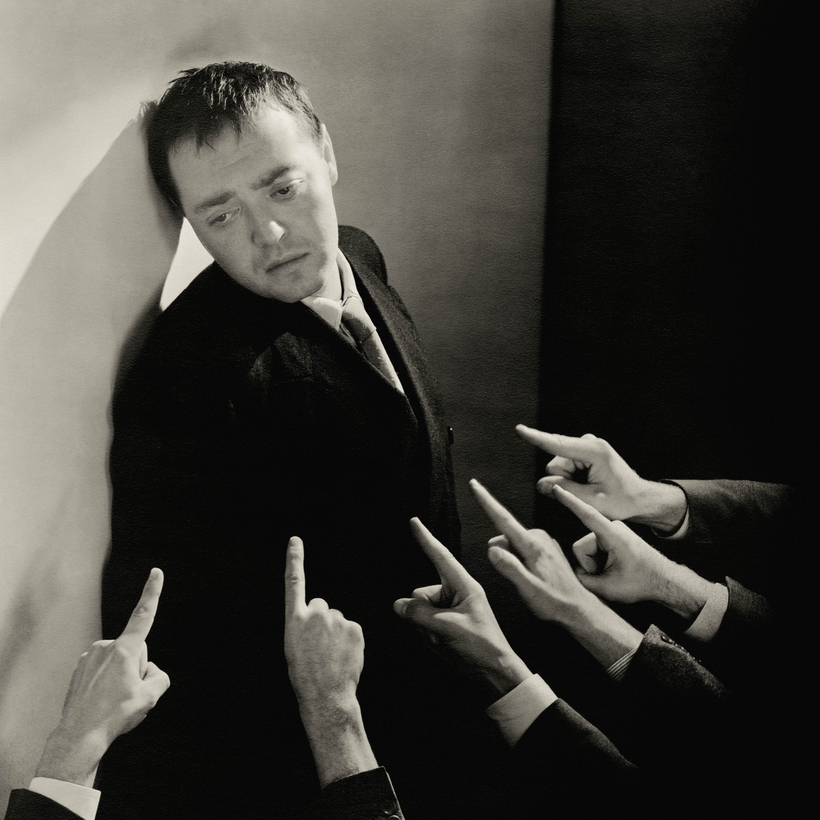Within 48 hours of the first mass protest following the killing of George Floyd, the e-mails started to roll in. From your gym, your bookstore, your alma mater, the retailer whose Facebook ad for a pizza-print duvet you once clicked on while drunk. They all want you to know that they stand for diversity and against police violence. On Twitter, everyone from Lego to Pornhub to your favorite fast-food franchise has weighed in with a somber statement of support for the protesters (except Arby’s, and you’d better believe they’re on a list somewhere because of it). Facebook is awash in public privilege atonements. Instagram is a sea of black boxes interspersed with influencers posing with BLACK LIVES MATTER signs in couture gowns. Many entries sound like a confession written at gunpoint using words that the author barely understands. “In my whiteness, I have subconsciously built a brand that contributes to a racist system,” a lifestyle coach with 958,000 followers posted on Instagram. And if you haven’t made your own post yet, well, maybe you shouldn’t. The only thing worse than failing to attend this party is showing up too late.
With the country locked down and public spaces closed up, our social lives are online only—where nobody knows who you are or what you feel unless you advertise it. But advertise you must: even as thousands of people flout social-distancing measures and defy public-health edicts to protest, the demand upon individual citizens and brands alike to take a stand on social media remains fierce and unrelenting. It’s the pics-or-it-didn’t-happen ethos at work, where the most important thing is not what you do but what you are seen to be doing. On the Internet, a donation receipt for a protester’s bail fund—even a Photoshopped one—is worth more in cultural currency than the donation itself.
The pressure to say something is exceeded only by the pressure not to say the wrong thing. Silence is violence, but an awkward expression of sympathy is apparently trauma-inducing in its own right. Within a single 24-hour period, a person might learn that failing to speak up makes him or her “complicit” in anti-black brutality, but that setting aside time to discuss these issues is equally offensive—an empty performance. Not reaching out to your black acquaintances at this moment tells them you don’t care, but sending messages of support is oppressive, dehumanizing, an unforgivable boundary violation. “Brazen as ever, white people who have my phone number are finding a way to drain my time and energy,” writes one New York Times contributor, causing a thousand guilty white people to recoil from their message histories in horror.
It’s the pics-or-it-didn’t-happen ethos at work, where the most important thing is not what you do but what you are seen to be doing.
Amid this confused discourse, people are frantic for guidance. Sales of books such as White Fragility have skyrocketed, while those looking for concrete ways to support the black community are jumping at patently ludicrous and arguably racist advice (like randomly Venmo-ing $5 to every person of color in your contact list).
Meanwhile, the savviest digital citizens have realized that there’s cachet to be had in policing other people’s posts for offensive content or exposing them as hypocrites. An entire sphere of online entertainment has sprung up around calling out public figures for claiming to be woke when their past suggests otherwise. Actress Lea Michele wrote a #BlackLivesMatter tweet only to be called out by former co-stars for insensitive and micro-aggressive behavior on set (including allegedly having once threatened to, er, defecate into a black colleague’s wig), and lost an endorsement deal with HelloFresh the day before posting her apology on Instagram. This month alone, over a dozen media and entertainment figures have lost their jobs, including Bon Appétit editor Adam Rapoport and Refinery29 co-founder Christene Barberich, who both faced accusations of discrimination in the workplace. Everywhere, communities coalesce around expelling the heretics in their midst, according to a continually revised list of taboos that makes it as offensive to question certain protest tactics as it used to be to say “All lives matter.” (Although nobody is dumb enough to say that anymore. Progress?)
With so many competing and opposing demands in play, the most common result is a sort of paralysis, as we run back and forth in our well-worn grooves of hashtagged privilege acknowledgment and approved sloganeering. We stand with this and support that, but in a fog of mistrust that precludes any real connection. If reaching out could cause harm, it’s better to keep your hands to yourself; instead, we raise our voices and shout at nobody in particular, into the online abyss. But if this is meaningless when brands do it, isn’t it even more so when a person does?
For most of us, the most impactful work we’ll do is under the radar, on the phone, behind a curtain in the voting booth. For most of us, a single phone call to an elected official will make a far greater difference than a hundred posts telling other people to call—and for most of us, the energy we spend trying to be seen would be better spent doing. Social-media conventions and a few dedicated shamers have created the illusion that posting equals progress. It behooves us to realize that it doesn’t, and that hashtag activism turns us all into an army of influencers with no influence at all.
Kat Rosenfield is the author of three books and the co-author of A Trick of Light: Stan Lee’s Alliances


